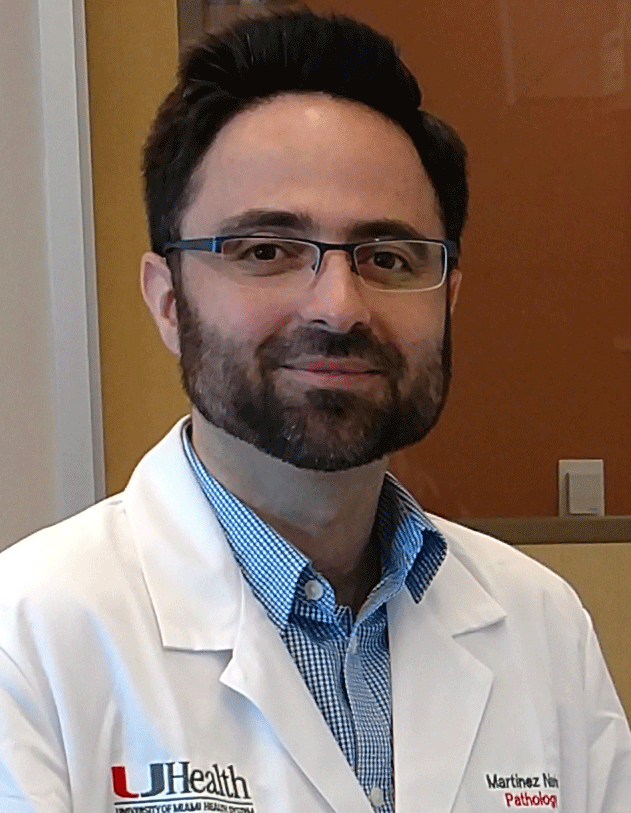Campbell Foundation Awards Grant to UM Researchers Seeking to Develop Functional Cure for HIV
An HIV researcher with the University of Miami Miller School of Medicine has been awarded an $80,000 grant from the Campbell Foundation to continue work in the development of a single vaccine injection resulting in a functional cure for HIV.
Jose M. Martinez-Navio, Ph.D., associate scientist in the Miller School’s Department of Pathology, and his team have been able to suppress the HIV virus for more than five years in one monkey and for extended periods in two others through the delivery of potent broadly neutralizing antibodies.

His team used adeno-associated virus (AAV) to deliver antibody genes into the muscle cells, turning them into cellular “factories” that can produce the genetically engineered antibodies indefinitely. Adeno-associated viruses are small viruses that infect humans and some other primate species without causing disease. When these AAV-delivered antibodies are recognized as “non-self,” unwanted host antibodies are deployed against them, which can compromise their concentration and functionality.
Dr. Martinez-Navio’s approach attempts to solve this key issue by making the antibodies to be delivered with AAV “more self” by rational removal of unwanted mutations the antibodies might have accumulated during their maturation process.
“If satisfactory and consistent delivery can be achieved, it becomes possible to envision both long-term control of the viral loads in the absence of antiretroviral treatment by delivering a combination of neutralizing antibodies in people as well as long-lasting protection when this approach is used in a prophylactic setting — both from a single administration of AAV,” said Dr. Martinez-Navio.
The research shows that durable, continuous antibody expression can be achieved after a single administration of AAV and supports the potential for lifelong protection against HIV from a single vector administration.
“Although not a cure in the purest sense of the word, it is a functional cure because it suppresses HIV viral load, thus keeping it below the level of detection without the use of ART (antiretroviral therapy),” said Campbell Foundation Executive Director Ken Rapkin. “The science is clear: If viral load cannot be detected, then someone who is living with HIV with an undetectable viral load cannot sexually transmit the virus to others.”
The research could have significant implications in developing countries where antiretroviral therapies are not readily available.
“Our long?term goal is to achieve lifelong protection against HIV with an approach that is simple, easy to deploy and cost-efficient,” said Dr. Martinez-Navio.
About The Campbell Foundation
The Campbell Foundation was established in 1995 by the late Richard Campbell Zahn as a private, independent, nonprofit organization dedicated to supporting clinical, laboratory-based research into the prevention and treatment of HIV/AIDS. It focuses its funding on supporting alternative, nontraditional avenues of research. In its 25th year, the Campbell Foundation has given away more than $11 million, with about $1.2 million going to direct services
Tags: Campbell Foundation, Dr. Jose Martinez-Navio, HIV/AIDS research


